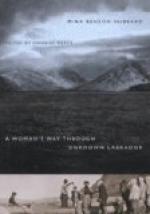A few minutes later those last words of the President were reported over the wires, without the sarcasm and without the smile. That very evening, in big headlines on the first page, it was announced that there was some hitch, and that President Angell might not go as Minister to the Court of the Sultan.
The correspondents of the morning papers hastened to see President Angell, who insisted that if he had made such a remark it was in fun. But it was unavailing. The despatch had stirred up the officials in Washington, and the morning papers that printed the President’s explanation printed over it the official statement, that the Porte was objecting to Dr. Angell, on account of his close relationship with the Congregational Missionary Board.
After his graduation in 1897, he took a position on the staff of a Detroit evening paper. Much of the two years of his newspaper work there was spent in Lansing covering State politics. In this line of work lay his chief interest, though he by no means confined himself to it.
His work made it possible for him to indulge his bent for dipping into the by-ways of human life. Utterly fearless, resolute, persistent, there was yet in his manner a beautiful simplicity, a gentleness and interest that rarely failed to disarm and win admission where he desired to enter. Added to this equipment were a fine sense of humour, a subtle sympathy, and a passionate tenderness for anyone or anything lonely or neglected or in trouble. So, as only the few do, he learned “Why.”
Here amidst the struggles and temptations, the joys and disappointments, the successes and mistakes of his busy life, one hero rose surely to a place above all others, a place that was never usurped—“the man, Christ Jesus,” worshipped in the years that were left, not only as the Redeemer of the world, but as his ideal hero.
This was his manliest man, so grandly strong and brave, yet so inexpressibly sweet-spirited and gentle, with a great human heart that, understanding so wholly, was yet so little understood; that in the midst of overwhelming work and care and loneliness hungered for human love and sympathy, giving so generously of its own great store, receiving so little in return. Here he found the strong purpose, the indomitable will, the courage that, accepting the hard things of life, could yet go unfalteringly forward, to the accomplishment of a great work, even though there was ever before Him the consciousness that at the end must come the great sacrifice.
In 1899 he decided to launch out into the wider field, which journalistic work in the East offered, and in the summer of that year he came to New York. Many were the predictions of brother reporters and friends that he would starve in the great city. It was a struggle. He knew no one, had letters to no one, but that was rather as he wished it than otherwise. He liked to test his own fitness. It meant risk, but he knew his own capabilities and believed in his own resourcefulness. He had thoroughly convinced himself that the men who achieve are those who do what other men are afraid to do. The difficulty would be to get an opening. That done, he had no fear of what would follow.




